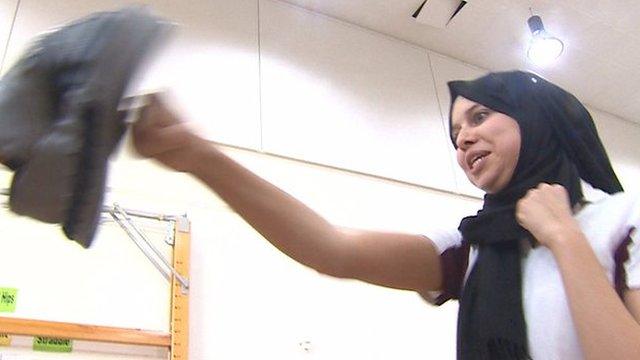Muslim powerlifter's passion changes sport's dress code
- Published
Tahirah Ali is keen to encourage other Muslim women into powerlifting
"Your hijab really does empower you to do more than you ever thought possible."
Tahirah Ali makes powerlifting over 135kg (21st 3lbs) look easy, but her journey was challenging.
Her determination to participate in the field even led to a change in the dress code rules in powerlifting competitions across the UK.
The 22-year-old from Swansea now wants to encourage other Muslim women to participate in sport.
Tahirah said she didn't find powerlifting, but it found her when she learned about it during an open day at the YMCA gym in the city.
"It felt so natural, it's the only way I can explain it," the Cardiff University student said.
Up to that point, Tahirah hadn't participated much in sport, but with powerlifting, she found a passion.
Being a female Muslim powerlifter was previously "unheard of" in her community, she recalled.
She "hadn't seen anybody in that space", and said Muslim women in sport can be an area that is "stigmatised" and where a hijab "can be perceived as a barrier".
"But it is honestly more of an empowerment than anything else," she said.
Over the years she has faced many negative comments and misconceptions.
"I've heard this isn't something you should be doing, it's too heavy for you," she said.
She also remembered being told she was "just a girl" and "not strong enough".
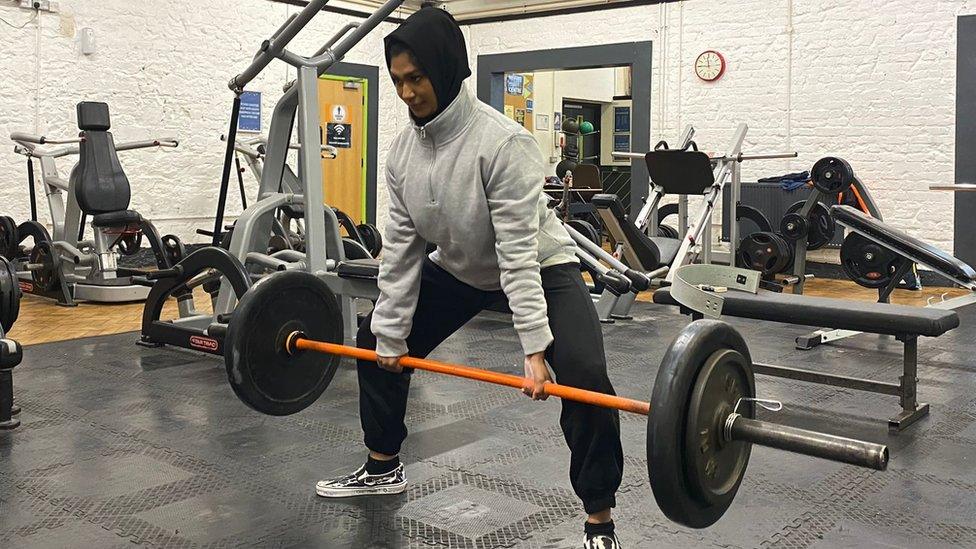
Tahirah Ali says there can be a stigma around Muslim women in sport and a hijab can be seen as a "barrier"
Tahirah now competes in powerlifting competitions, lifting up to 145kg, (22st 11lbs) which is more than double her body weight.
But competing was not something she even considered initially due to dress code rules.
The required dress code for competing was what she describes as a "singlet" that looks like a "swimming suit" that would leave some of her arms and legs "exposed".
"I wouldn't feel comfortable, let alone allow myself to be in that space," she said.
'One simple conversation'
So she took action, and contacted the Welsh Powerlifting Association (WPA).
"It was one simple conversation," she said.
"I stated my concerns, and they said they were more than happy for me to be fully covered.
"Honestly, it was not only a sense of relief, but a sense of empowerment knowing that I could still keep my identity, fully covered, but participate in a sport I genuinely do have a deep passion for."
WPA treasurer Lucy Cohen said in a statement: "Making sure that those who want to compete but also wear "modest" clothing was really important to us."
She added that they were "proud to lead the way in allowing competitors to do that. In fact, the national guidelines have now been updated to accommodate this."
"I feel like I can conquer the world," Tahirah said.
She feels she's not only pushed the "perceptions of other people, but my own perceptions".
"You can genuinely just see in the mirror the look of shock and surprise that a young girl is in this space firstly, but also dominating," she added.
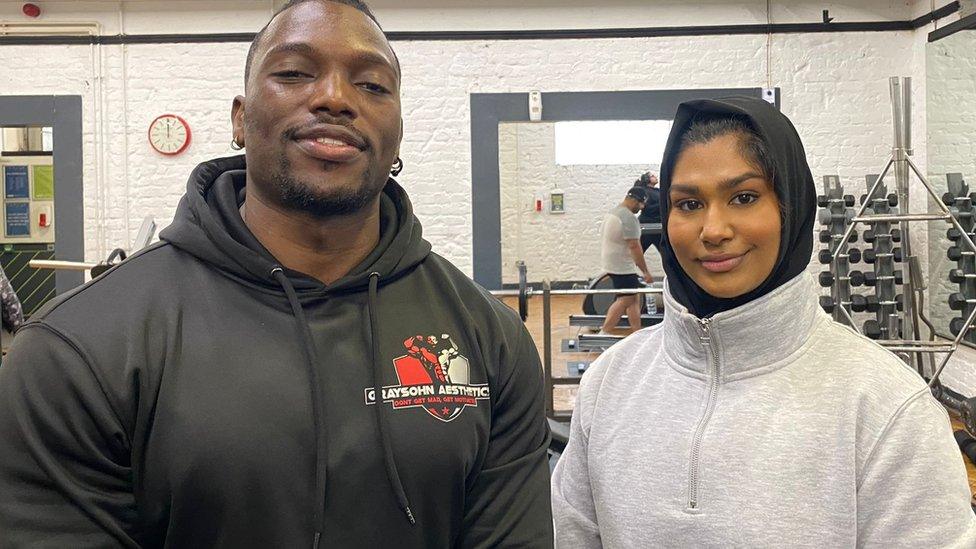
Coach Richard Graysohn Nkhata says of Tahirah Ali: "She is really, really strong, I'd say she's literally off the charts"
Tahirah is now working with young people in her community to encourage them to do the same.
"I've grown up around amazing women, but not in sports and pushing these kind of boundaries," she said.
She said being a "role model" and showing other young Muslim women that they can also "dominate the sports field", is a way of "giving back" to her community.
Her coach, Richard Graysohn Nkhata, said when he met her, he saw potential and offered to help her improve.
He recalled initially being nervous to approach her due to "stigma" and "held back a little bit" to ensure she was comfortable with him speaking to her.
"It was a bit of a strange situation for people to see someone like her working out in the gym and lifting the weight she was lifting," he said.
'She can spread her wings'
Since working together, Richard is in awe of her growth.
"I feel proud. I feel like my job here is done," he said.
"I feel like I've hit the pinnacle of my support. Where she can now spread her wings and then go up there and take the world on.
"On a scale of one to 10, I think she'll break the scale to be honest. She is really, really strong, I'd say she's literally off the charts."
Tahirah's achievements have led to her being named as a finalist in the Ethnic Minority Welsh Women Achievement Association Awards.
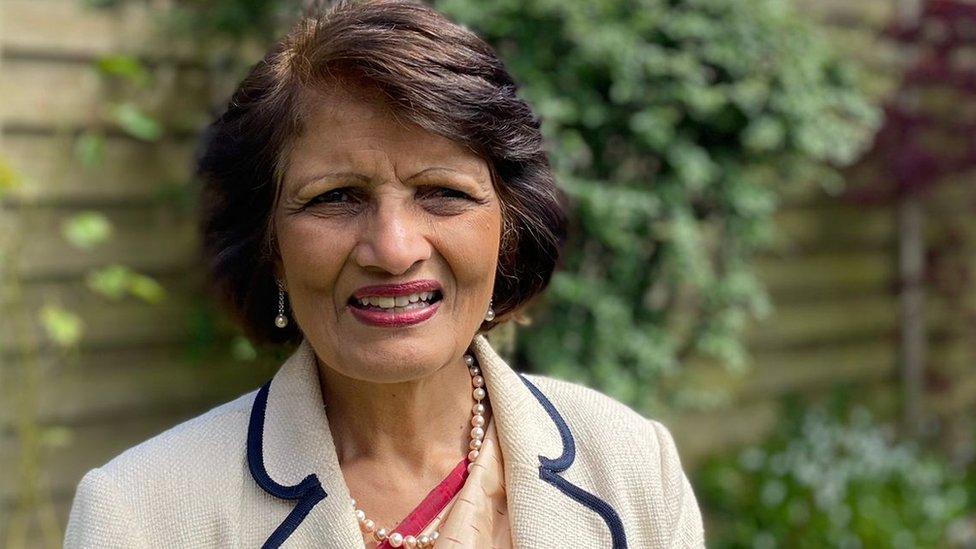
"BAME women are very modest and not good at representing themselves, so they shouldn't be underestimated," says Meena Upadhyaya
The awards ceremony in Cardiff on Saturday celebrate successful ethnic minority women in Wales excelling in their fields and making an impact.
The association's founder Meena Upadhyaya found there were "hardly any black and minority ethnic women around", so she wanted to change things by creating an association to celebrate those influential women in Wales.
"The aim of our organisation is to empower ethnic minority women living in Wales, identify role models for different communities and to promote equality and diversity," said the medical geneticist.
"BAME women are very modest and not good at representing themselves, so they shouldn't be underestimated, there is huge talent here."
The awards are on Saturday in Cardiff City Hall, where 25 winners will be announced across a range of categories.

TALK DISABILITY: Chris shares how his bipolar diagnosis changed his life
MY LOVE LETTER TO WRESTLING: Becky Lynch joins Mark Andrews to talk about her love of wrestling

- Attribution
- Published28 February 2023
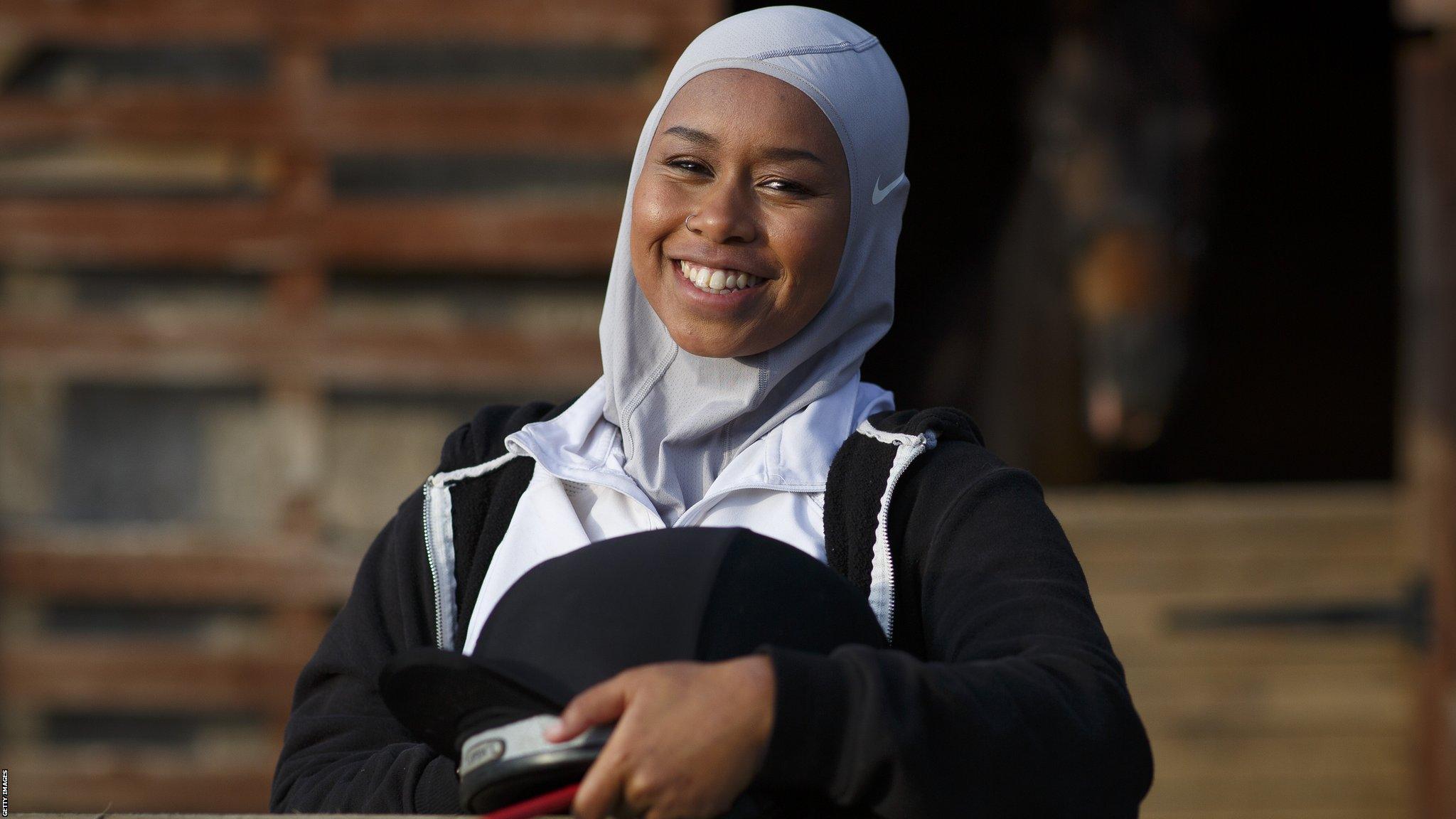
- Published25 June 2022
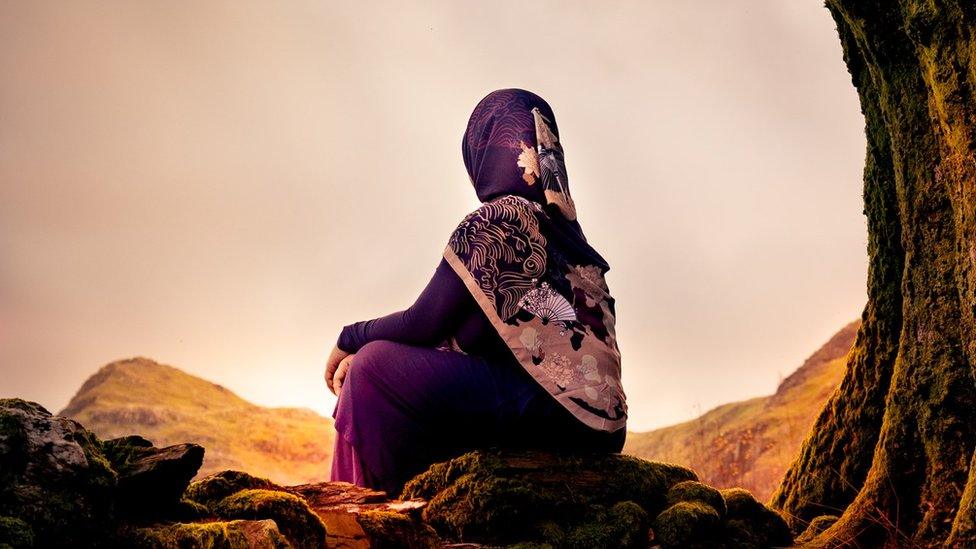
- Attribution
- Published8 March 2018
